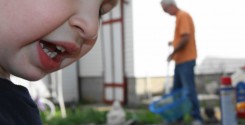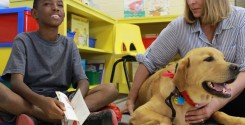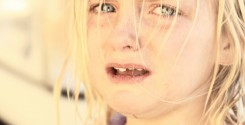The Complete Guide to the 2013 DSM-5 and What the Changes Mean to You and Your Anxious Child
Posted on January 4, 2013
A revised psychiatrist's "bible," or DSM-5, is making its official debut in May. Controversy has long been swirling around the changes, which could have an impact on the mental health care you and your anxious child receive.
Filed Under: ADHD, Child Anxiety and Panic Attacks, Child Phobias, Featured, OCD, Other Childhood Anxiety Disorders, Parenting Anxious Children, Selective Mutism, Separation Anxiety, Social Anxiety Tagged With: adolescents and teens, child anxiety, depression, DSM, GAD, OCD, panic attacks, phobias, PTSD, social anxiety, therapy and treatment, toddlers
Separation Anxiety and Panic Disorder: What’s the Connection?
Posted on November 5, 2012
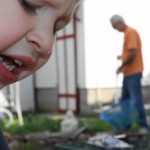 Science shows that kids who have separation anxiety and adults who have panic attacks might have the same genetic quirk. Experts don't know yet if anxiety disorders are caused by environmental factors or heredity, but someone who has a genetic vulnerability may be at an increased risk for developing separation anxiety as a child or panic disorder as an adult.
Science shows that kids who have separation anxiety and adults who have panic attacks might have the same genetic quirk. Experts don't know yet if anxiety disorders are caused by environmental factors or heredity, but someone who has a genetic vulnerability may be at an increased risk for developing separation anxiety as a child or panic disorder as an adult.Filed Under: Child Anxiety and Panic Attacks, Other Childhood Anxiety Disorders, School Anxiety and School Refusal, Separation Anxiety Tagged With: child anxiety, life skills, panic attacks, parenting, Research, School, separation anxiety, stress management
Exercise for Anxious Children – Why it Matters and How to Get Kids Moving
Posted on October 4, 2012
 Studies consistently show that exercise and physical activity is one of the most effective ways to help reduce child anxiety and manage the stress today's child can struggle with. Learn what the research says about how and why exercise works for managing anxiety and some sneaky tricks to get your child more active and think it's FUN.
Studies consistently show that exercise and physical activity is one of the most effective ways to help reduce child anxiety and manage the stress today's child can struggle with. Learn what the research says about how and why exercise works for managing anxiety and some sneaky tricks to get your child more active and think it's FUN.Filed Under: ADHD, Child Anxiety and Panic Attacks, Child Phobias, Featured, OCD, Other Childhood Anxiety Disorders, Parenting Anxious Children, School Anxiety and School Refusal, Selective Mutism, Separation Anxiety, Social Anxiety, Uncategorized Tagged With: adolescents and teens, child anxiety, exercise, life skills, parenting, Research, stress management, therapy and treatment, toddlers
Too Much on Their Plates: Child Anxiety and Overscheduling
Posted on October 3, 2012
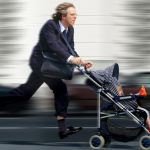 Children with anxiety can find well meaning parents filling their schedules with seemingly fun activities like sports, play dates, or dance lessons, but is it really what's good for them? Learn about the relationship between a busy lifestyle and anxiety, how to find the right balance for your child, and what activities are best out of all the options available.
Children with anxiety can find well meaning parents filling their schedules with seemingly fun activities like sports, play dates, or dance lessons, but is it really what's good for them? Learn about the relationship between a busy lifestyle and anxiety, how to find the right balance for your child, and what activities are best out of all the options available.Filed Under: ADHD, Child Anxiety and Panic Attacks, Child Phobias, Featured, OCD, Other Childhood Anxiety Disorders, Parenting Anxious Children, School Anxiety and School Refusal, Selective Mutism, Separation Anxiety, Social Anxiety, Uncategorized Tagged With: adolescents and teens, child anxiety, life skills, parenting
Sleep, Your Child’s Anxiety, and How to Make it Better By Tonight
Posted on September 26, 2012
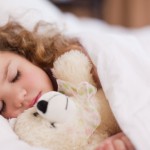 Sleep problems in children can be caused by anxiety or result in decreased tolerance to stress. Recent research points to several hidden causes parents need to know and shows how you can help you child get the rest they need.
Sleep problems in children can be caused by anxiety or result in decreased tolerance to stress. Recent research points to several hidden causes parents need to know and shows how you can help you child get the rest they need.Filed Under: ADHD, Child Anxiety and Panic Attacks, Child Phobias, Featured, OCD, Other Childhood Anxiety Disorders, Parenting Anxious Children, School Anxiety and School Refusal, Selective Mutism, Separation Anxiety, Social Anxiety, Uncategorized Tagged With: adolescents and teens, child anxiety, parenting, Research, sleep and bedtime
Mindfulness or MBSR for Treating Child Anxiety
Posted on September 22, 2012
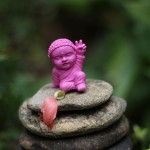 Mindfulness Based Stress Reduction (MBSR) and mindfulness practices have proven themselves highly beneficial for treating anxiety, panic attacks, and more. Learn what it is, the supporting research, and how it can be used to help treat child anxiety.
Mindfulness Based Stress Reduction (MBSR) and mindfulness practices have proven themselves highly beneficial for treating anxiety, panic attacks, and more. Learn what it is, the supporting research, and how it can be used to help treat child anxiety.Filed Under: ADHD, Child Anxiety and Panic Attacks, Child Phobias, Featured, OCD, Other Childhood Anxiety Disorders, Parenting Anxious Children, Selective Mutism, Separation Anxiety, Social Anxiety, Uncategorized Tagged With: child anxiety, MBSR and mindfulness, parenting, Research, stress management, therapy and treatment
Making Time to Relax for Children With Anxiety
Posted on September 21, 2012
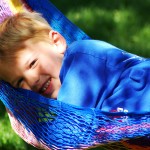 Children with anxiety need opportunities to actively LEARN to relax. Learn some great ways research shows you can help you anxious child improve their anxiety management skills.
Children with anxiety need opportunities to actively LEARN to relax. Learn some great ways research shows you can help you anxious child improve their anxiety management skills.Filed Under: ADHD, Child Anxiety and Panic Attacks, Child Phobias, Featured, OCD, Other Childhood Anxiety Disorders, Parenting Anxious Children, Selective Mutism, Separation Anxiety, Social Anxiety, Uncategorized Tagged With: child anxiety, parenting, stress management
Five Simple Suggestions for Dealing with Separation Anxiety
Posted on September 19, 2012
 Have you struggled with getting your child to calm down when you have to go somewhere? If so, there are ways you can make your son or daughter more comfortable and calm. It's perfectly normal for a small child to feel upset when separated from a parent, but it doesn't have to become a major problem in your household. Find out what you can do to lessen the effects of separation anxiety.
Have you struggled with getting your child to calm down when you have to go somewhere? If so, there are ways you can make your son or daughter more comfortable and calm. It's perfectly normal for a small child to feel upset when separated from a parent, but it doesn't have to become a major problem in your household. Find out what you can do to lessen the effects of separation anxiety.Filed Under: Child Anxiety and Panic Attacks, Other Childhood Anxiety Disorders, Parenting Anxious Children, School Anxiety and School Refusal, Separation Anxiety Tagged With: child anxiety, parenting, separation anxiety, stress management, therapy and treatment
Stranger Anxiety in Babies and Young Children
Posted on August 28, 2012
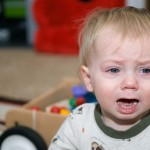 Does your baby become anxious and clingy when someone they do not know wants to hold or play with them? If so, your baby is demonstrating "stranger anxiety" which is a developmentally normal reaction. Learn a few tips for helping your baby become more comfortable with new people so that everyone feels secure and has fun!
Does your baby become anxious and clingy when someone they do not know wants to hold or play with them? If so, your baby is demonstrating "stranger anxiety" which is a developmentally normal reaction. Learn a few tips for helping your baby become more comfortable with new people so that everyone feels secure and has fun!Filed Under: Child Anxiety and Panic Attacks, Separation Anxiety Tagged With: child anxiety, parenting, separation anxiety, social anxiety, toddlers
Child Anxiety Treatment Study: Therapy Plus Zoloft Best
Posted on August 24, 2012
 In the treatment of child anxiety disorders, combining the medication Zoloft with Cognitive Behavior Therapy was found by researchers to be the most effective. Neither treatment on its own was effective as both treatments put together. Many children with anxiety disorders only receive one treatment as intervention, so these researchers hope to encourage clinicians to use this dual-treatment approach.
In the treatment of child anxiety disorders, combining the medication Zoloft with Cognitive Behavior Therapy was found by researchers to be the most effective. Neither treatment on its own was effective as both treatments put together. Many children with anxiety disorders only receive one treatment as intervention, so these researchers hope to encourage clinicians to use this dual-treatment approach.Filed Under: Child Anxiety and Panic Attacks, Other Childhood Anxiety Disorders, Separation Anxiety, Social Anxiety Tagged With: Research, therapy and treatment
